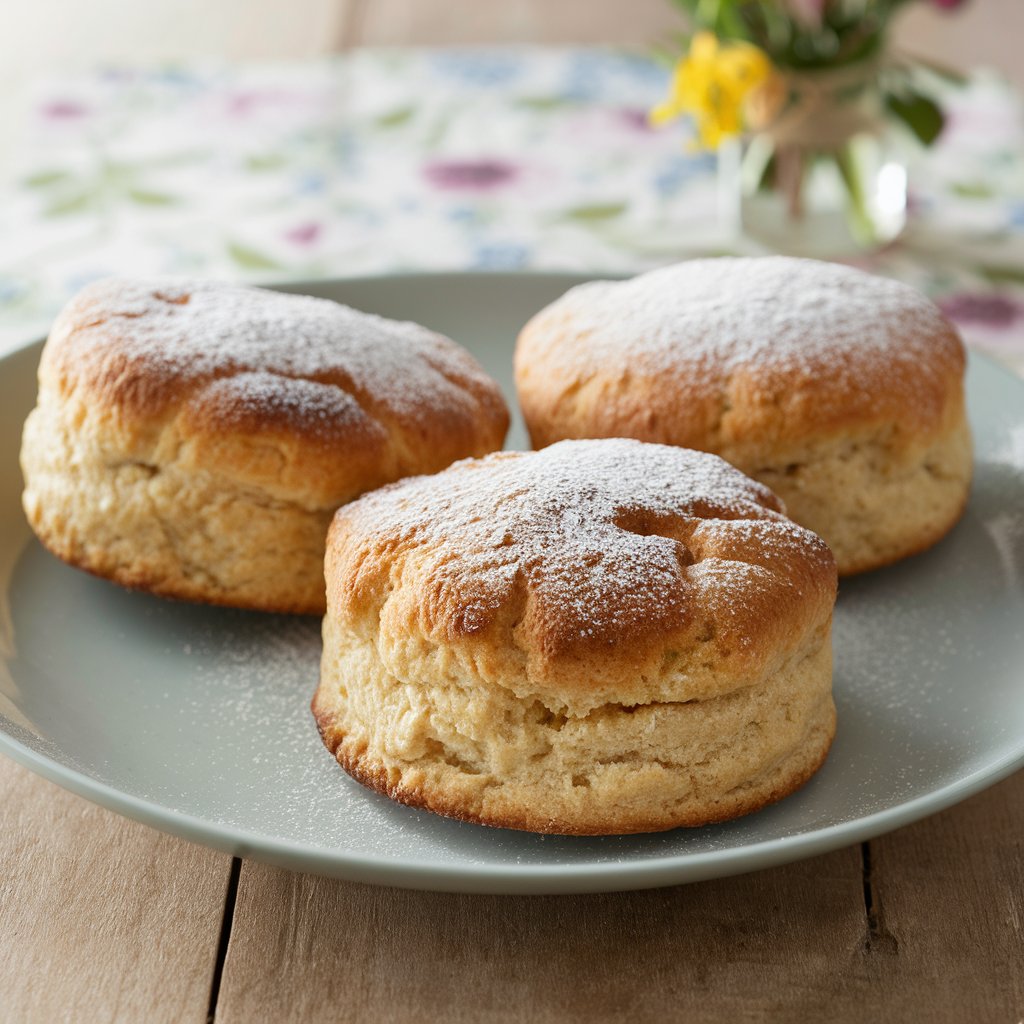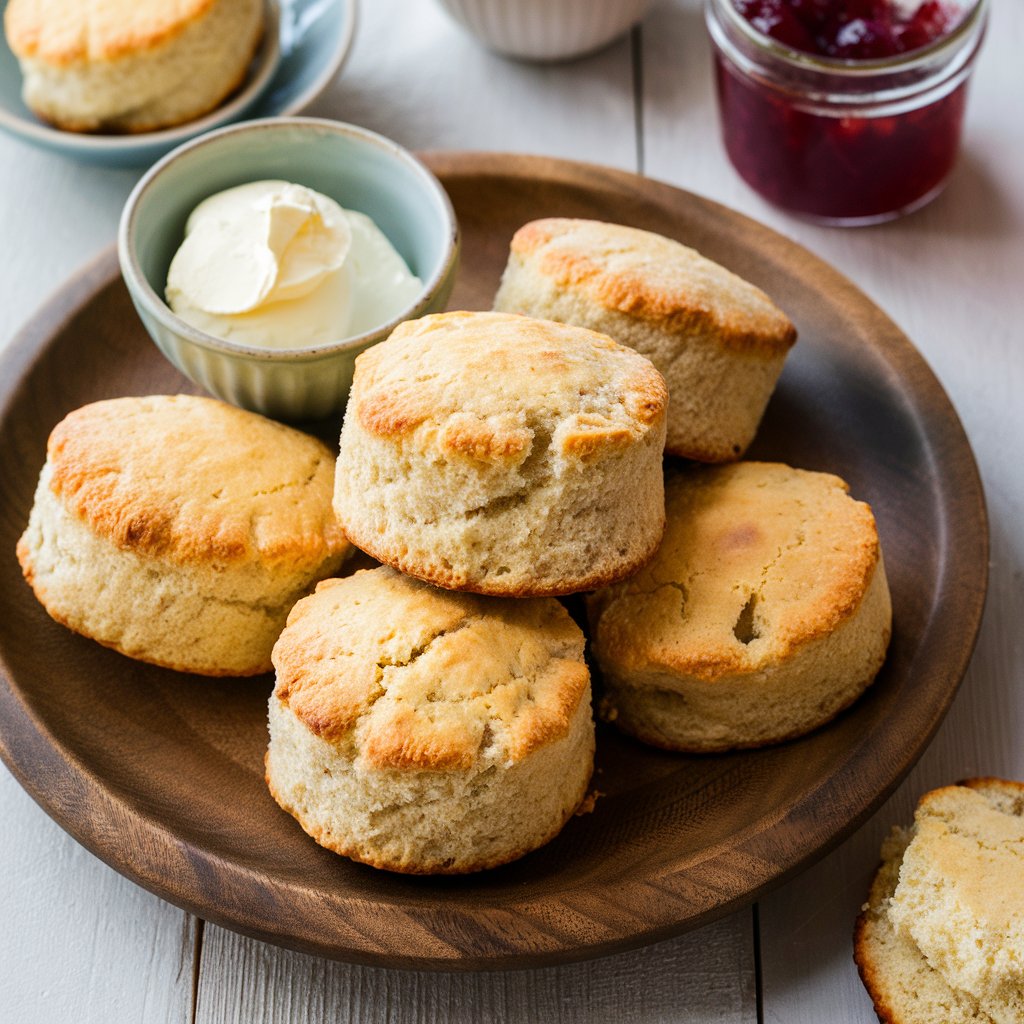Simple Scones are a quintessential part of British tea-time tradition. These light and tender pastries are perfect for pairing with your favorite jams, creams, or just a dab of butter. Whether you’re hosting a high tea or just craving a sweet afternoon treat, these scones are sure to delight any palate.

This recipe offers a straightforward approach to achieving the perfect scone—golden on the outside and soft in the middle. It’s a versatile base that invites numerous variations, whether you’re adding dried fruit, nuts, or even savory spices. Serve them warm for the ultimate comfort treat, right from your oven to the table.

Simple Scones
Classic British Tea-Time Scones
Recipe
Ingredients:
- 2 cups all-purpose flour
- 1/3 cup sugar
- 1 tsp baking powder
- 1/4 tsp baking soda
- 1/2 tsp salt
- 8 tbsp unsalted butter, frozen
- 1/2 cup raisins (optional)
- 1/2 cup sour cream
- 1 large egg
Directions:
- Preheat oven to 400°F (200°C).
- In a medium bowl, mix flour, sugar, baking powder, baking soda, and salt. Grate butter into flour mixture on the large holes of a box grater; use your fingers to work in butter until mixture resembles coarse meal.
- Stir in raisins.
- In a small bowl, whisk sour cream and egg until smooth.
- Stir sour cream mixture into flour mixture until large dough clumps form. Use your hands to press the dough against the bowl into a ball.
- Place on a lightly floured surface and pat into a 7- to 8-inch circle about 3/4-inch thick. Cut into 8 triangles; place on a cookie sheet (preferably lined with parchment paper), about 1 inch apart. Bake until golden, about 15-17 minutes. Cool for 5 minutes and serve warm or at room temperature.
Prep Time: 10 minutes | Cooking Time: 15 minutes | Total Time: 25 minutes
Kcal: 315 kcal | Servings: 8 servings
NOTs for [Your Topic]
1. NOT every [element related to Your Topic] is suitable for everyone.
- Consider your specific needs and circumstances before deciding.
2. NOT all information found online about [Your Topic] is accurate.
- Always verify with reliable sources or consult with a professional.
3. NOT neglecting to follow safety guidelines while engaging with [Your Topic].
- It’s crucial to adhere to all safety measures to avoid potential risks.
4. NOT assuming [Your Topic] is a quick solution.
- [Your Topic] usually requires time and effort to see significant results.
5. NOT forgetting to update yourself as [Your Topic] evolves.
- Stay informed about the latest developments and practices.
If you provide the specific topic, I can create FAQs and NOTs that are more closely aligned with your actual needs.
FAQs for [Your Topic]
1. What is [Your Topic]?
- [Your Topic] refers to [simple definition or explanation of the topic].
2. How can someone get started with [Your Topic]?
- To begin with [Your Topic], you should [basic steps or initial advice].
3. What are the common benefits of engaging with [Your Topic]?
- The benefits include [list of benefits].
4. Are there any costs associated with [Your Topic]?
- Yes, the costs can vary depending on [explanation of what the costs are based on].
5. Where can I find more resources about [Your Topic]?
- More information can be found at [mention any relevant websites, publications, or places].
